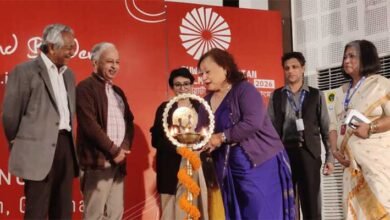Supreme Court Upholds Validity Of Section 6A Of Citizenship Act Recognizing Assam Accord
Section 6A provides the framework to recognise migrants in Assam as Indian citizens or to expel them based on the date of their migration.

NEW DELHI- The Supreme Court on Thursday upheld the constitutional validity of Section 6A of the Citizenship Act, 1955. Section 6A was inserted in Assam Accord in 1985 to grant citizenship benefits to illegal immigrants from Bangladesh, who entered Assam between January 1, 1966, and March 25, 1971.
A Constitution Bench, headed by CJI D. Y. Chandrachud, was dealing with a clutch of petitions challenging the vires of Section 6A, which was inserted to give effect to the Assam Accord and formed the basis of the National Register of Citizens (NRC) in Assam in 2019.
In December last year, the five-judge Bench, comprising Justices Surya Kant, M.M. Sundresh, J. B. Pardiwala, and Manoj Misra, reserved its decision after hearing oral arguments from both sides.
The majority upheld the constitutional validity of the impugned provision, while, Justice Pardiwala, in his minority opinion, struck down Section 6A of the Citizenship Act with prospective effect.
Also Read- Assam Assembly by-elections: 5 seats to vote on November 13
During the hearing, the Supreme Court had asked the Union government to inform it about the administrative steps taken to prevent the inflow of illegal immigrants into Indian territory in northeastern states, particularly from Assam.
It had called for a common affidavit from the Union and Assam governments about the number of Bangladeshi immigrants granted citizenship in Assam between January 1, 1966, and March 25, 1971, under section 6A (2) of the Citizenship Act, 1955.
The affidavit had stated that 14,346 foreign nationals were deported from the country between 2017 and 2022, and 17,861 migrants who had entered Assam between January 1966 and March 1971 were given Indian citizenship under the provision.
32,381 persons were declared foreigners by orders of Foreigners Tribunals between 1966-1971, it had added.
Watch Video- Chum Darang abused Avinash Mishra, Bigg Boss evicted Avinash from the show
Earlier, the bench had said that Section 6A was enacted as a humanitarian measure in the wake of the 1971 Bangladesh Liberation War and is deeply interwoven in our history.
On December 17, 2014, a matter relating to citizenship in Assam was referred to the five-judge Constitution bench. On April 19, 2017, the top court constituted the bench to hear the case.
In 1985, the Indian government and the All Assam Students Union (AASU) and the All Assam Gana Sangram Parishad (AAGSP) negotiated and drafted the Assam Accord and created categories of immigrants. Section 6A was added to the Act in December 1985 in furtherance of the Assam Accord.
AASU and AAGSP were groups that agitated against an influx of Bangladeshi-immigrants after Bangladesh separated from West Pakistan on 26 March 1971.
Also Read- Four arrested, Heroin worth Rs 4.5 cr seized
Section 6A provides the framework to recognise migrants in Assam as Indian citizens or to expel them based on the date of their migration.
The provision provides that those who have come to Assam on or after January 1, 1966, but before March 25, 1971, from specified territories, including Bangladesh, and since then are residents of Assam, must register themselves under Section 18 for citizenship. Therefore, the provision fixes March 25, 1971, as the cut-off date for granting citizenship to Bangladeshi migrants in Assam.
Petitioners, including the Assam Public Works President, the Assam Sanmilita Mahasangha, and many others, challenged the provision, saying that it singles out Assam and has facilitated mass immigration.
They claimed that the demographic of Assam changed drastically due to immediate citizenship being granted to immigrants who claim that they entered Assam before the March 1971 cut-off date.
Petitioners had challenged Section 6A way back in 2012 while arguing that Section 6A is discriminatory, arbitrary and illegal so far as it provides for different cut-off dates for regularising illegal migrants who entered Assam and the rest of India.
Section 6 of the Constitution states that any person who migrated from Pakistan before 19 July 1948 would be granted citizenship. Petitioners said that Section 6A indirectly amended this constitutional provision, arguing that Bangladesh was still a part of Pakistan on 1 January 1966.
They said the insertion of a new cutoff date for granting citizenship would violate an existing cutoff date for immigrants entering India from Pakistan.
The Bangladesh Liberation War, which led to the independence of Bangladesh from Pakistan, witnessed a massive influx of migrants to India. Even prior to when Bangladesh gained independence from East Pakistan in 1971, migration had started to India.
On March 19, 1972, Bangladesh and India entered into a treaty for friendship, cooperation and peace.









